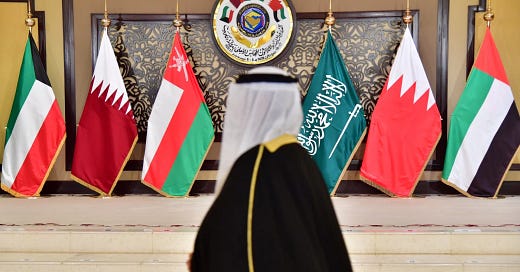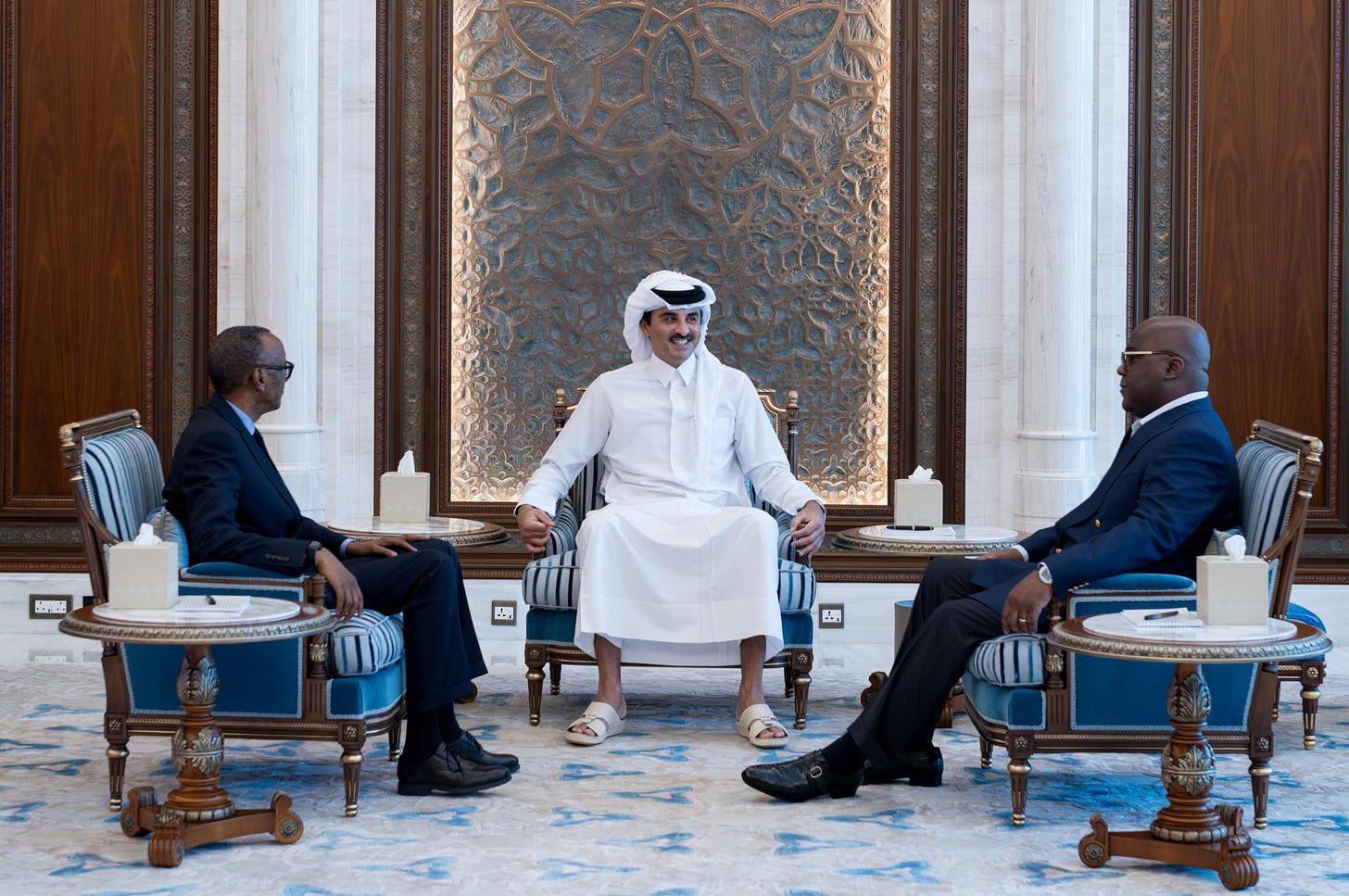For decades, Africa has been the playground of global powers, a continent where foreign interests dictate the flow of capital, conflict, and commerce. The latest entrants in this great game are the Middle Eastern petrostates, Saudi Arabia, the UAE, and Qatar, whose vast oil wealth, political ambitions, and strategic anxieties have pushed them deep into African affairs.
This is not investment; it is influence. The Gulf states are systematically embedding themselves into Africa’s ports, militaries, governments, and food systems, reshaping the continent’s power structures to serve their own geopolitical interests. And as history shows, when external players become too entrenched, chaos is the inevitable result.
The real question is: are our low-quality elites to blame for letting it happen?
The Gulf’s Silent Takeover of Africa
The Gulf’s entry into Africa is not random. It is a carefully executed strategy to secure food, water, and trade routes while expanding their geopolitical footprint. The methods are varied, but the pattern is clear:
Ports and Maritime Domination: The UAE’s DP World now controls key African ports, including Berbera, Dakar, Djibouti, and Luanda. This is not just about trade, it is about controlling chokepoints. The Red Sea and Horn of Africa are now, in many ways, extensions of the Gulf’s strategic ambitions.
Military Bases and Proxy Wars: The UAE and Saudi Arabia have set up bases in Eritrea, Somaliland, and Somalia, turning East Africa into a forward operating zone for Gulf military interests. The Gulf states have armed and funded factions in Libya, Sudan, and Somalia, escalating conflicts that have already killed thousands. Gulf money fuels coups and countercoups, ensuring that African leaders remain indebted and obedient.
Buying Sovereignty, One Investment at a Time: Qatar and the UAE bankroll politicians and regimes, influencing elections from Sudan to Kenya. Just last month, the emir of Qatar mediated a détente between DRC’s Tshisekedi and Rwanda’s Kagame much to the surprise of everyone. Saudi and Emirati firms have bought millions of hectares of African farmland, ensuring Gulf food security while Africa struggles with shortages. Sovereign wealth funds from Riyadh and Abu Dhabi dictate infrastructure deals, ensuring African economies remain tethered to Gulf capital. This is a textbook case of economic dominance in the 21st century. But this time, the buyers wear white robes, not Western suits.
Havoc Is the Inevitable Outcome
Wherever Gulf petrostates intervene, instability follows. The proof is already in front of us: Somalia’s internal fragmentation has deepened, as Qatar, the UAE, and Turkey back competing factions to secure influence; Sudan has collapsed into civil war, with Gulf-backed military factions fighting for control; Libya remains a failed state, thanks in part to Emirati and Qatari interventions backing rival warlords.
The Gulf states operate on a transactional model of foreign policy. They do not build lasting institutions, they buy loyalty, arm factions, and extract value. The result is predictable: political instability, economic subjugation, and fractured sovereignty.
Yet, Africa’s political elite watches it happen with open hands and empty minds.
The Role of Africa’s Low-Quality Elites
Africa has not been conquered, it has been sold, piece by piece, by leaders who trade sovereignty for short-term financial gain. They auction off strategic assets, ports, telecom networks, and railways, to the highest bidder, with no national interest in mind. They invite external militaries onto African soil, forgetting that once a foreign base is established, it never leaves. They accept Gulf money to fund elections and entrench personal power, oblivious to the long-term consequences.
This is not geopolitics, it is opportunism, driven by a political class too weak, too corrupt, or too short-sighted to play the long game. Where past African leaders navigated global power struggles with skill, today’s elites have reduced Africa to a subcontractor of Gulf ambitions.
discusses our low-quality elites in excellent detail1.The Choice Before Us
The Gulf’s march into Africa is not about partnership, it is about control. Africa faces a fundamental choice: Will we be passive pawns in a Gulf power struggle, or will we reclaim our agency? Will we continue selling sovereignty for short-term loans, or will we build strategic alliances that serve African interests? Will we keep electing leaders who auction off our future, or will we demand better?
**********
For Darryl, who has taken years to write an article on Saudi Arabia.







But what about investing billions of dollars in America by gulf countries